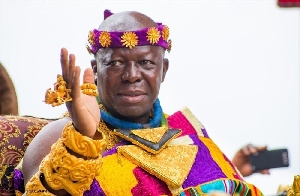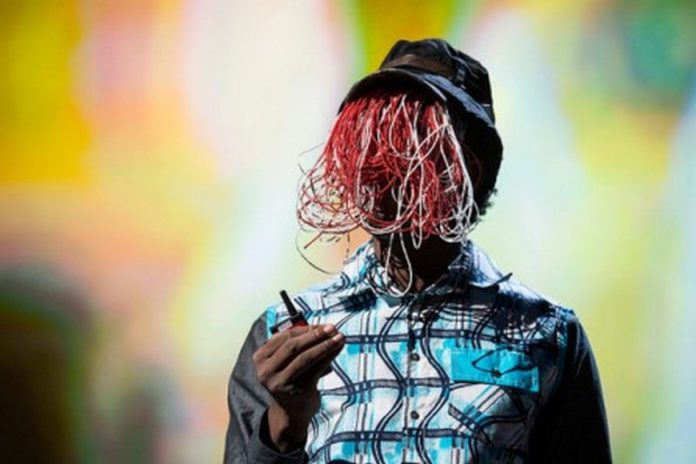You swore allegiance at Manhyia before becoming Dormaahene – Otumfuo reminds Agyemang Badu II

Dormaahene accuses Ashantis of distorting history
Otumfuo replies Dormaahene
Stop the arrogance and aggression, says Otumfuo
The Asantehene, His Royal Majesty Nana Otumfuo Osei Tutu II, has reminded the Paramount Chief of Dormaa Traditional Area, Osagyefo Oseadeeyo Agyemang Badu II the genesis of his title as Dormaahene.
Nana Agyemang Badu II, in a recent outburst, called out the people Ashanti for engaging in what he described as a distortion of history in favour of the Ashanti Kingdom.
But in a response to the Dormaahene, the King of Ashanti Kingdom has shot down the assertion saying there has never been a distortion of history in anyway.
Otumfuo, speaking at the first meeting of the Ashanti Traditional Council, noted that the Dormaahene owes allegiance to the Asantehene.
“I want to remind those who have probably forgotten history and speaking out of ignorance, we haven’t forced anyone to serve us, it is even an honour to serve the Golden Stool. Agyeman Badu was a teacher, he swore right here to my uncle before ascending the throne as the chief of Dormaa,” Otumfuo said, adding, “It was my orchestration when Dormaa Kusi was defeated.”
Otumfuo further noted that the people of Dormaa have sought to break away from the Ashanti Kingdom but according to him the allegiance owed the Kingdom is not one that can be broken.
His Majesty, Otumfuo added that the insistence of the Dormaahene on his independence does not take anything away from the Ashanti Kingdom as there are large numbers of paramount chiefs who pay allegiance to him.
“I’ve never intended on making anyone a servant. Mo and Banda all pay allegiance here. Dormaa owes allegiance here. So what is with the arrogance and aggression? I don’t even need you. I have 65 paramount chiefs, better ones. If all these people say I am their lord and you say I am not, why do I have to care about just you?,” Otumfuo questioned.
Background
Oseadeeyo Agyemang Badu II, in a viral Facebook video sighted by GhanaWeb, stated that history has been distorted by the Asante’s to suit their interest.
He said, some chiefs in Ghana talk as if they are greater than the Almighty God but “nobody is greater than God.” Going into history, Oseadeeyo Agyemang Badu II said, in the year 1640, the then chief of Akwamu, Ansa Sasraku, was going about saying when he dies, none of the twins of his sister can succeed him; this continued for a while till he died and it happened that there was confusion among the citizenry.
Dormaahene said, amid the confusion, the people of Kumawu took over some territories across the country and even extended to Côte d’Ivoire but “when they got to present-day Asante, that territory was under the Denkyirahene. Today they have an appellation as ‘asante kotoko kum apem a apem beba’ [if you kill thousand, thousand will come] but do you know that of the people of Bono, theirs is ‘abono kyen apem’ [Bonos are more than thousand]”
Oseadeeyo Agyemang Badu II explained, “this means that, when we got to Denkyira, Dormaahene had his territory; so the two were not fighting each other, our brothers from Asante – they were a group of people who had come together – but they broke away from Ntim Gyakari…and decided to fight the people of Dormaa because they were defeated six times…
“…We beheaded their chief and his head is still with the people of Dormaa…it took the people of Dormaa 250 years before they came to settle at Dormaahenkro but no chief was able to defeat the chief of Dormaa, because you don’t read your history you don’t know.
“You have fallen for the history that Okomfo Anokye planted a tree both in Asante and Kumawu and because the tree died that is why the place is called Kumawu; that is a lie. When we talk about Kumasi, it means that they were labourers. When we got to the place known as Asante today, the people of Kumasi were under Denkyira and they were responsible for getting Denkyirahene firewood that is ‘akuma ase’ but today, because of their population, they have changed it. It means ‘akuma ase hene’ and not Kum. If you are a chief and you are brilliant and you know the law, people are afraid of you…,” Dormaahene stressed.
Source: www.ghanaweb.com






